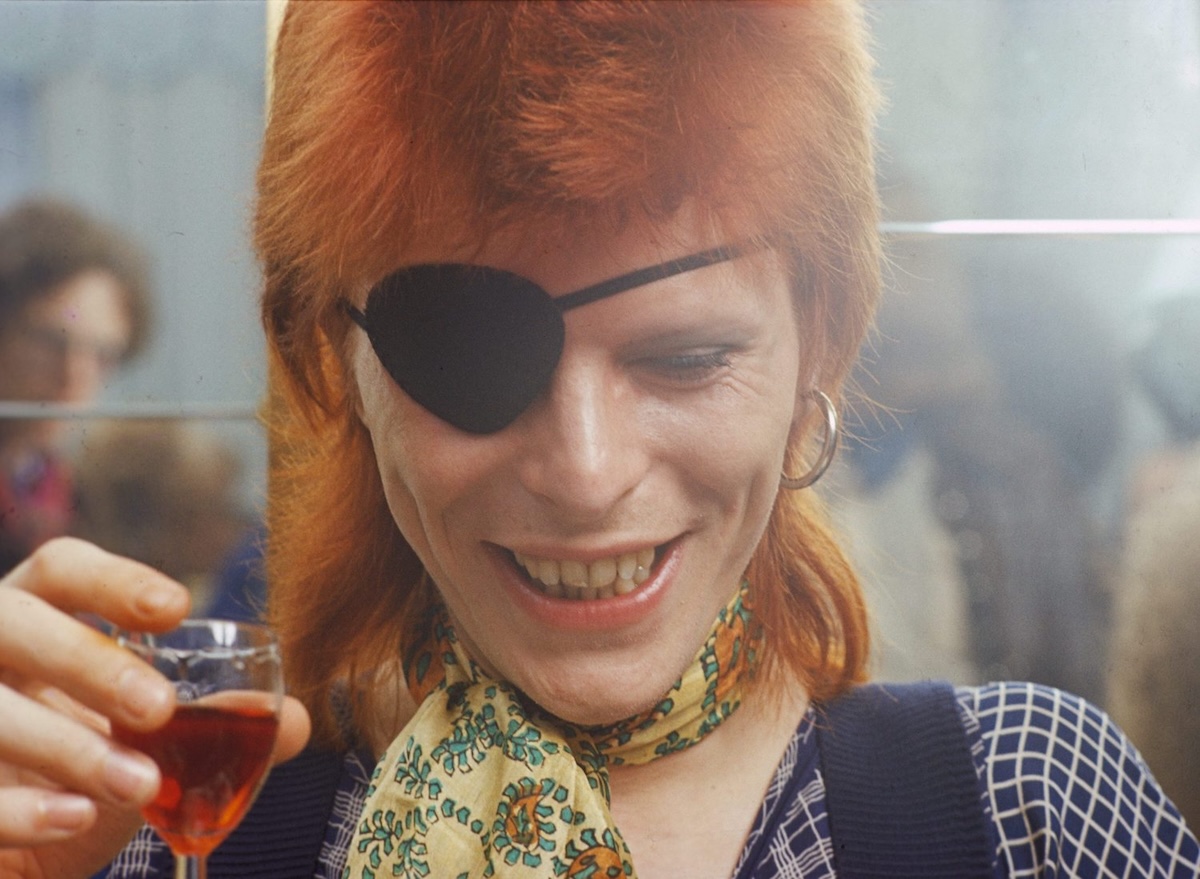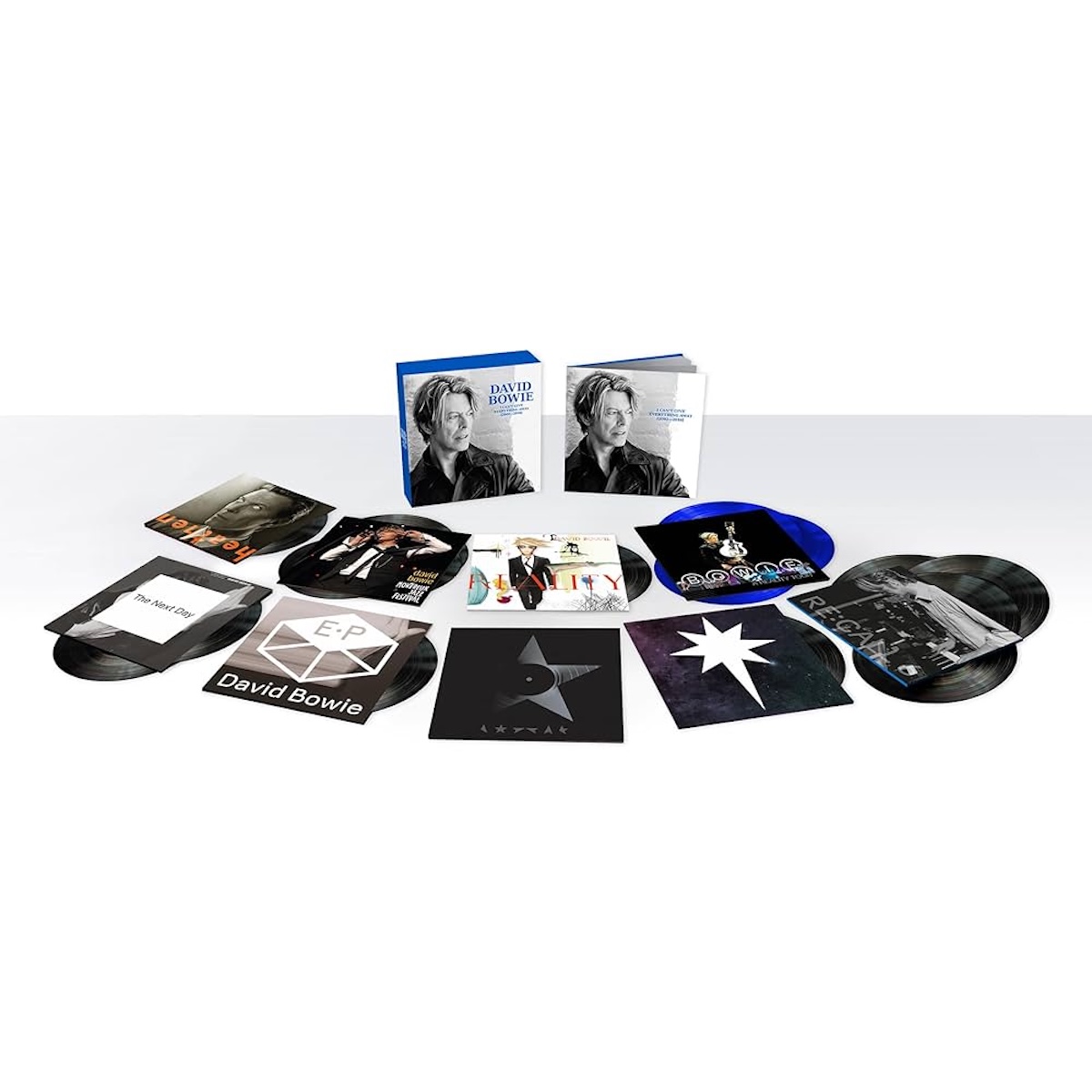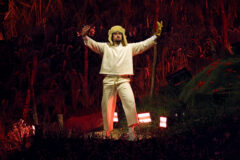For one cruel moment it felt like we had David Bowie back. He went silent for nearly a decade after suffering a heart attack during a performance in Prague in 2004, resurfacing in 2013 with The Next Day, a strong collection of songs that felt like a comfortable, but not revelatory, coda to a multi-decade-long career full of exciting innovations and left turns.
Then, on his birthday, January 8, 2016, Bowie released Blackstar, an exciting, boundary-pushing record that incorporated forward-looking, experimental jazz with lyrics about mortality and legacy. For many critics and fans, Blackstar was Bowie’s best record since his imperial period ended with 1980’s Scary Monsters (and Super Creeps), perhaps signaling a new and exciting chapter. Two days later, Bowie would be dead at the age of 69 from cancer that he had kept secret from everyone except close confidantes.

I Can’t Give Everything Away (2002-2016), released September 12, is the sixth and final mega-box set in Rhino’s series that collects most, if not all, of Bowie’s recorded output. Available in 13-CD, digital and 18-LP iterations, the set collects the four studio albums, two EPs, and two live albums Bowie recorded in his final decades, along with Re:Call 6 which features 41 non-album tracks. The set also includes a book featuring archival photos and essays, including some by Bowie’s frequent co-producer Tony Visconti.
Along with The Next Day and Blackstar, this set also collects Heathen (2002) and Reality (2003). Heathen, which reunited Bowie with Visconti for the first time since 1980, felt like Bowie’s response to post-9/11 dread, even though the material predated that tragedy. Featuring late-career masterpieces such as “Slow Burn” and “Slip Away,” Heathen is also home to a trio of cover songs including the Pixies’ “Cactus” and Neil Young’s “I’ve Been Waiting for You.” Meanwhile, Reality is a slicker, more rock-focused record that opens with the excellent track “New Killer Star” and features covers such as Jonathan Richman’s “Pablo Picasso.” Even though all four of these records have been pressed to vinyl before, some are quite expensive and difficult to find.

For the collector, however, I Can’t Give Everything Away (2002-2016) is the first time Live at Montreux has seen a physical release. Recorded at the Montreux Jazz Festival in Switzerland in 2002, the two-CD/three-LP set features not only Bowie classics and deep cuts but also a finale that boasts a nearly complete, rearranged performance of the musician’s 1977 classic record Low. The set also features a remastered version of 2010 live album A Reality Tour.
Meanwhile, Re:Call 6 finishes out the odds ‘n’ sods bonus collection that began 10 years ago with the first set, the long-out-of-print Five Years (1969-1973). Here, we get collaborations with Lou Reed, live cuts with Arcade Fire, B-sides, and even tracks found on soundtracks from films such as Charlie’s Angels: Full Throttle.
January will mark 10 years since Bowie’s passing, and the world has felt like a worse place without him. If anything, I Can’t Give Everything Away (2002-2016) serves as the final word on one of the most influential careers of the 20th century and allows fans the opportunity to own and marvel at everything Bowie released in the final 14 years of his life.


Leave a comment